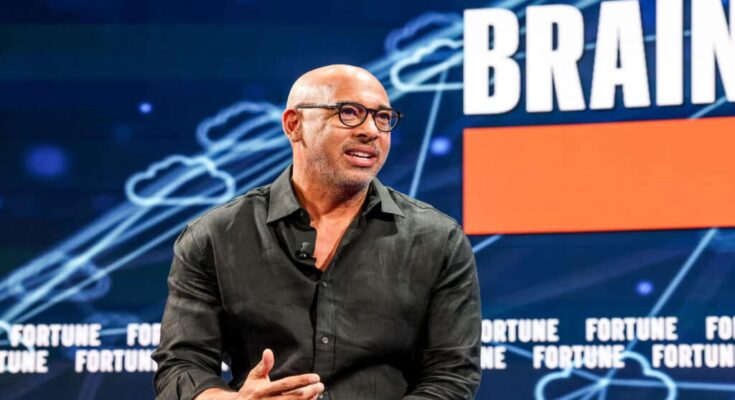
Harvey Mason Jr., CEO of the Recording Academy, made headlines recently when he announced that the Grammy Awards would now allow music created with the help of artificial intelligence (AI). This announcement about AI in the music industry led to some confusion.
Many wondered if AI itself could win a Grammy. Mason later cleared things up, explaining that only humans can submit music for the awards, but AI can assist in making it.
In an interview, Mason said that the rules around AI and music may change over time. He added that the Academy’s goal is to honor human creativity at its best.
The spread of AI is making waves in the arts, much like it has in the tech world. Many are asking the big question: will AI replace me?
In the music industry, this raises other concerns too. What will happen to copyright, royalties, and the effort artists put into their work?
Mason explained that the music world is feeling these concerns. Some people are anxious and unsure, while others are hopeful about the changes.
Grammy CEO Harvey Mason Jr. sparked controversy by allowing AI-generated music to be eligible for Grammy Awards. This decision raises concerns about the impact of AI on the music industry and the future of creativity. pic.twitter.com/6yXrTsh9wp
— Tech In 60 Mins (@TechIn60Mins) August 31, 2024
Artists are responding in different ways. Some are sending legal warnings to remove unauthorized AI versions of their work. Others are open to AI, as long as they are fairly paid for it.
Musician Devante shared strong views with TechCrunch, saying, “I wholeheartedly believe that AI in music shouldn’t even exist.” Moreover, he expressed his opinion that AI should only handle basic tasks.
As an artist, Devante feels the rise of AI is a real threat. “Music is my world,” he said. “Now it’s all too easy for someone to masquerade as something it’s taken me my whole life to be.”
Mason said AI is already playing a role in music, mainly in tasks like sound mastering and equalizing. However, the industry’s main concerns are making sure artists’ work is used with proper permission, ensuring humans are credited separately from AI, and guaranteeing fair payment.
This includes protecting both the copyright that AI learns from and the likeness of artists. There’s also the challenge of making sure these protections are upheld across the entire music industry.
Mason has helped start the Human Artistry Campaign to tackle these issues and push for stronger rules around AI in the arts.
He also played a role in passing the ELVIS Act in Tennessee, which gives artists more control over how their voices are used without permission. Additionally, Mason supports the No AI Fraud Act and the No FAKES Act, both of which aim to protect creators from AI-generated imitations of their work and likeness.



